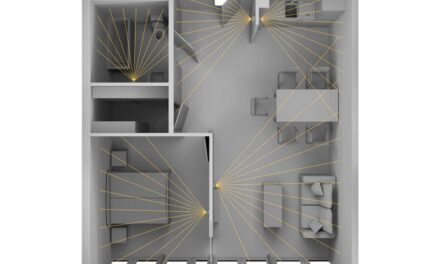Roche has entered into a collaboration with Eli Lilly and Company to support development of Roche’s Elecsys Amyloid Plasma Panel (EAPP), which is blood test that aims to facilitate the earlier diagnosis of Alzheimer’s disease.
Today, barriers to early and accurate diagnosis of Alzheimer’s exist across the globe, with up to 75% of people living with the symptoms of Alzheimer’s but without a diagnosis. Those who have received a diagnosis waited, on average, 2.8 years after symptom onset1. To address the growing strain that Alzheimer’s is putting on healthcare systems, it will be essential to make a person’s journey to diagnosis faster and more accessible, the company says.
This collaboration is aligned to both Roche and Lilly’s shared objective to support patients by improving the journey to a timely and accurate diagnosis and treatment of Alzheimer’s. If approved, the EAPP test would be an additional tool to identify low likelihood of amyloid pathology in symptomatic patients and determine whether they should proceed to further evaluation and testing that may confirm a diagnosis.
“We are excited to be collaborating with Lilly on such an important area of unmet medical need,” says Matt Sause, CEO of Roche Diagnostics. “Today, over 55 million people are living with dementia and this is projected to increase to nearly 140 million by 20502. Collaboration is essential to ensure these people receive a timely and accurate diagnosis. The Elecsys Amyloid Plasma Panel has the potential to streamline a person’s journey to diagnosis and, therefore, access to future treatment options.”
In July, Roche announced that the U.S. Food and Drug Administration (FDA) granted the EAPP Breakthrough Device Designation.
“We are pleased to be joining Roche to support the development of yet another potential diagnostic tool,” says Mark Mintun, Lilly group vice president – Neuroscience R&D and president, Avid Radiopharmaceuticals. “We look forward to the robust data and continued collaboration across the field that will be critical to accelerate the ecosystem to aid in a timely and accurate diagnosis of Alzheimer’s.”
References
- Life Expectancy Following Diagnosis Of Alzheimer’s Disease Depends On Age At Diagnosis, Johns Hopkins Bloomberg School of Public Health, November 18 2002, https://publichealth.jhu.edu/2002/alzheimer-age
- World Health Organization. Dementia. https://www.who.int/news-room/fact-sheets/detail/dementia





